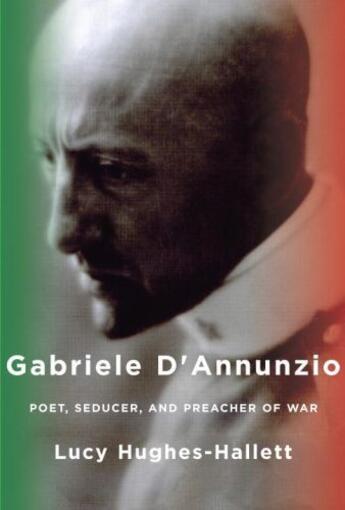Résumé:
Godfather to Mussolini, national hero of Italy and the WWI irredentist movement, literary icon of Joyce and Pound, lover of actress Eleonora Duse: here is Lucy Hughes-Halletts extraordinary biography of Gabriele dAnnunzio, poet, bon vivant, harbinger of Italian fascism.
Gabriele dAnnunzio was... Voir plus
Godfather to Mussolini, national hero of Italy and the WWI irredentist movement, literary icon of Joyce and Pound, lover of actress Eleonora Duse: here is Lucy Hughes-Halletts extraordinary biography of Gabriele dAnnunzio, poet, bon vivant, harbinger of Italian fascism.
Gabriele dAnnunzio was Italys premier poet at a time when poetry mattered enough to trigger riots. A brilliant self-publicist in the first age of mass media, he used his fame to sell his work, seduce women, and promote his extreme nationalism. In 1915 dAnnunzios incendiary oratory helped drive Italy to enter the First World War, in which he achieved heroic status as an aviator.
In 1919 he led a troop of mutineers into the Croatian port of Fiume and there a delinquent city-state. Futurists, anarchists, communists, and proto-fascists descended on the city. So did literati and thrill seekers, drug dealers, and prostitutes. After fifteen months an Italian gunship brought the regime to an end, but the adventure had its sequel: three years later, the fascists marched on Rome, belting out anthems theyd learned in Fiume, as Mussolini consciously modeled himself after the great poet.
At once an aesthete and a militarist, dAnnunzio wrote with equal enthusiasm about Fortuny gowns and torpedoes, and enjoyed making love on beds strewn with rose petals as much as risking death as an aviator. Lucy Hughes-Halletts stunning biography vividly re-creates his flamboyant life and dramatic times, tracing the early twentieth centurys trajectory from Romantic idealism to world war and fascist aggression.
Donner votre avis














